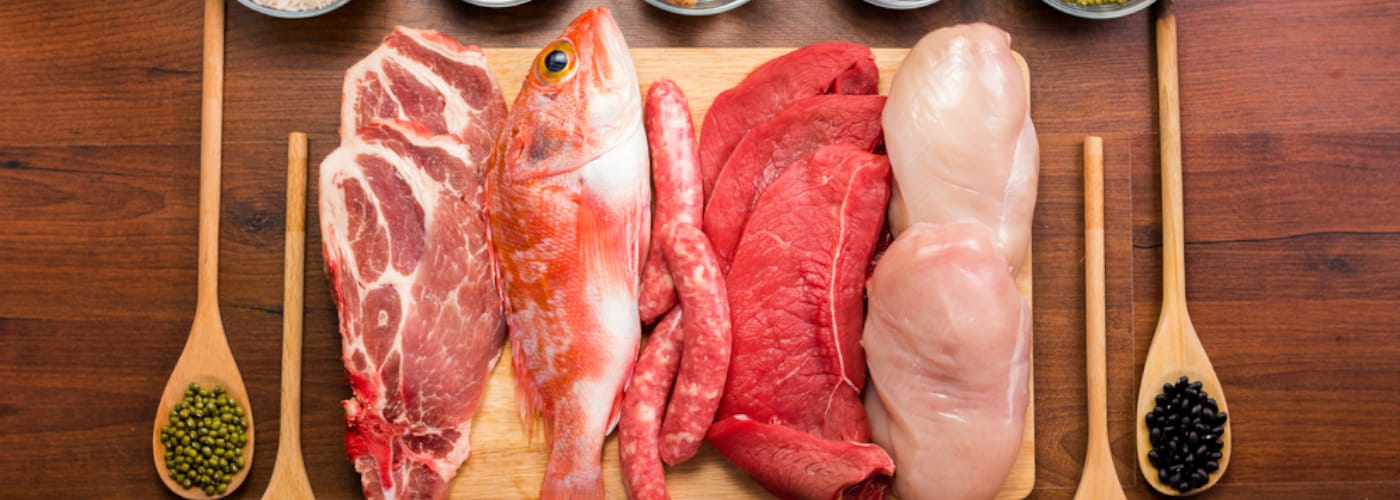Protein is essential in your diet, especially if you are watching your weight because it can help you shed unwanted pounds but still keep you feeling full. Plus, it may help reduce your risk of heart disease. Just ensure you eat the right amount to reap its full health benefits. Find out which sources of protein you should get more often.
Eating More Protein for a Healthier Diet
Protein is not just helping you reach a healthy weight but also a significant building block of bones, muscles, cartilage, skin, and blood. If you don’t have time to sit down for a meal, grab a meal replacement drink, cereal bar, or energy bar. Check the label to be sure the product contains at least six grams of protein and is low in sugar and fat. Here are HiDow International’s eight most important sources of protein.
1. Eggs
One medium egg contains only 70-85 calories and about 6.5 grams of protein. Plus, they are one of the least expensive forms of protein. The American Heart Association says healthy adults can safely enjoy an egg daily.
2. Lean Beef
Lean beef has only one more gram of saturated fat than skinless chicken breast. Although it may cost a little more, the benefits will ensure it’s all worth it. Lean beef is also an excellent source of zinc, iron, and vitamin B12.
3. Seafood
Seafood is an excellent source of protein because it’s usually low in fat and still has about the same amount of protein as meat. Fish such as salmon is a little higher in fat, but it is the heart-healthy kind: it has omega-3 fatty acids.
Related: 8 Sure Ways to Shed Body Fat
4. Skinless White-Meat Poultry
Stick to the white meat of poultry for high-quality, lean protein. Chicken and Turkey are great sources of protein that are low in saturated fat, while dark meat is a little higher in fat. Remove the skin before cooking because it is loaded with saturated fat.
5. Pork Tenderloin
Pork tenderloin is an affordable cut of pork, unlike all the other versions of the T-word, which you think are high-end gourmet splurges. Plus, it’s one of the leanest and most tender cuts. Three-ounce pork tenderloin contains 3 grams of fat and 22 grams of protein per serving. This cut tastes even better in low-fat preparations like roasting, grilling, or stewing.
Related: 6 Ways to Gain Muscle Mass
6. Nuts and Legumes
They may be considered the perfect food as they contain more protein than any other plant food, and they are also high in complex carbs yet low in fat. A cup of lentils will give you nearly 18 grams of protein– comparable to a serving of T-bone steak.
7. Milk, Cheese, and Yogurt
Not only are dairy foods like milk, cheese, and yogurt excellent protein sources. They also contain valuable calcium; many are fortified with vitamin D. Choose skim or low-fat dairy to keep bones and teeth strong and help prevent osteoporosis.
8. Soy
Fifty grams of soy protein daily can help lower cholesterol by about 3%. Eating soy protein instead of sources of higher-fat protein and maintaining a healthy diet can be good for your heart.
The Bottom Line
Including a source of protein like an egg or Greek yogurt at breakfast and a high-fiber grain like whole-wheat toast can help you feel full longer and eat less throughout the day. So make sure you include protein in your diet and feel the difference!
Related: 5 Ways to Maintain Muscle Health

Related Stories
5 Ways to Support Bone Strength with HiDow
World Osteoporosis Day (October 20) October 20 is World Osteoporosis Day, and chances are, you’ve...
Oct
FDA-Cleared Is a Flex. Here’s Why.
Pulling Back the Curtain You’ve seen it on boxes, on websites, in ads: FDA-cleared. It...
Sep
This Is Fibro. This Is Larry.
September is Pain Awareness Month. And we’re not here to give you medical definitions or...
Sep
Train Your Relaxation Reflex
How often do you find yourself struggling to switch off after a long day? With...
Aug
Back To School Fitness: Balancing Academics & Athletics
Most student athletes don’t have a motivation problem. They show up. They train hard. They...
Aug
How to Cope with a Sports Injury
Staying active helps your body stay strong. But sometimes, activity leads to pain, strain, or...
Jul